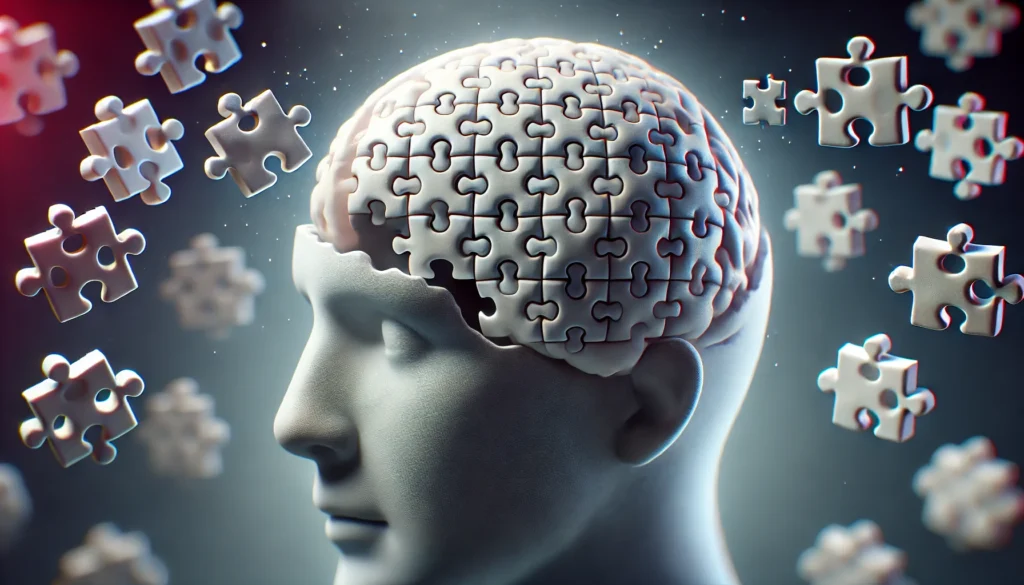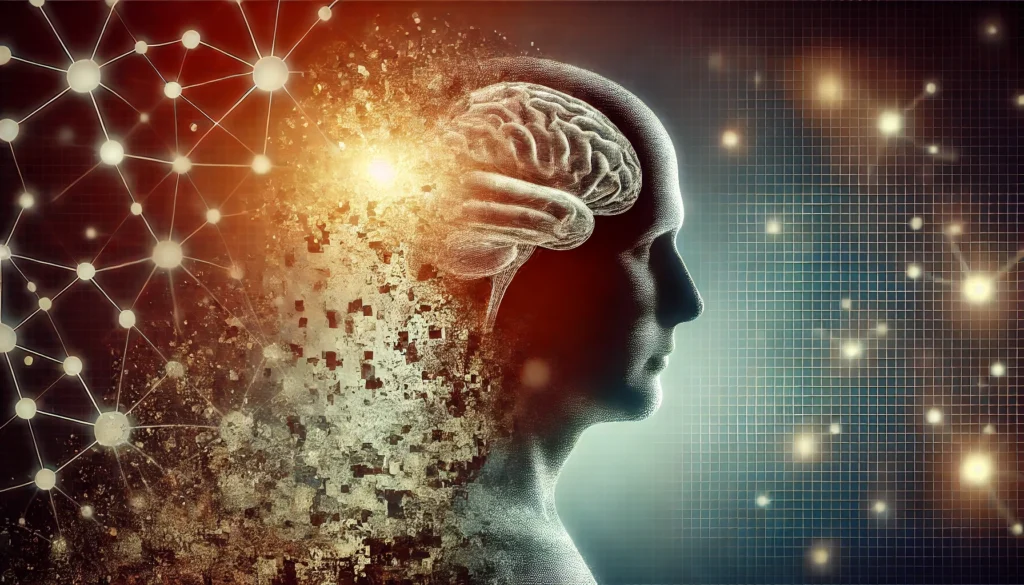Memory, which is a highly intricate function of the brain, is shaped by a multitude of different factors that can significantly impact how well we remember information. These factors include various aspects of our lifestyle, such as our diet, exercise routines, and sleep habits, as well as existing health conditions that may affect cognitive function. Additionally, the natural process of aging plays a crucial role in memory performance, as it can lead to changes in the brain that influence how memories are formed and retrieved. Understanding these influences can help us grasp the complexities of memory and how to potentially enhance it throughout our lives.
As we age, it is natural for some cognitive processes to slow down. This phenomenon is often referred to as age-associated memory impairment. It is characterized by occasional forgetfulness, such as misplacing keys or struggling to recall names. These instances are generally benign and do not interfere significantly with daily life.
You may also like: Boost Your Mind: Top Brain Games
The Anatomy of Memory
Memory involves several brain regions, primarily the hippocampus and the frontal cortex. The hippocampus is crucial for forming new memories, while the frontal cortex is involved in retrieving stored information. As we age, these areas can shrink, leading to the common memory lapses associated with aging.
Factors Influencing Memory Changes
Several factors can influence memory changes over time. Genetic predispositions, environmental influences, and lifestyle choices all play significant roles. Understanding these factors can help in tailoring strategies to maintain cognitive health.
Age-Associated Memory Impairment
Age-associated memory impairment is a normal part of aging. Unlike dementia, it does not significantly impact daily functioning. Recognizing and differentiating between normal memory decline and more severe conditions is vital for seeking appropriate interventions. Mild cognitive impairment (MCI) represents a stage between normal age-related memory loss and more serious conditions like dementia. Understanding its progression can help individuals take early steps toward cognitive support.
Age-Related Memory Loss vs. Dementia
The distinction between age-related memory loss and dementia is essential. As individuals progress through the various stages of their lives and enter older age, it is quite common for them to encounter minor memory lapses or instances of forgetfulness from time to time.
This phenomenon can present itself in many common daily scenarios that people might encounter. For instance, someone may find themselves unable to locate their car keys when they are in a hurry to leave the house. Similarly, they may struggle to remember the names of people they have met before, such as coworkers or neighbors, which can create an awkward social situation. Additionally, this can extend to having trouble recollecting the names of places they frequently visit, like a local coffee shop or gym, leading to moments of frustration and confusion in their everyday lives.
These experiences are generally viewed as part of the natural aging process and can occur for many reasons, including the effects of stress, sleep patterns, and changes in cognitive function that are typical with advancing age.
However, dementia stands in stark contrast to these normal age-related changes, as it encompasses a much more significant and progressive deterioration of cognitive abilities. This decline can profoundly impact an individual’s memory, as well as their capacity for thinking and reasoning. There are multiple types of dementia, each with distinct characteristics and effects on cognitive function. Understanding the differences among them can help in recognizing early signs and seeking appropriate care.
The ongoing struggle can have a considerable effect on a person’s capability to manage and organize their daily routines in an effective manner. When someone faces challenges in this area, it can lead to difficulties that ripple through multiple aspects of their lives. These challenges may disrupt not only their personal schedule but also their professional responsibilities and interpersonal relationships, creating a cycle of stress and frustration that can be hard to overcome.
As a result of these challenges, individuals may experience a decline in their overall ability to function in daily life. This decline can manifest in various ways, significantly impacting their capacity to partake in activities that many people consider routine or standard.
These activities can encompass a variety of essential personal care tasks that individuals perform to maintain their health and hygiene. Additionally, they often include fulfilling work obligations that require significant focus, dedication, and commitment in order to achieve professional responsibilities. Moreover, these activities extend to nurturing social relationships, which play a crucial role in supporting emotional well-being and fostering a sense of connection with others. Maintaining these relationships can provide individuals with social support, companionship, and a sense of belonging that are all important for overall mental health. When these areas are affected, it can create a cycle of difficulties that further impede their quality of life.
Conditions such as Alzheimer’s disease fall within the broader category of dementia. Recognizing the distinction between normal age-related forgetfulness and the more serious cognitive decline seen in dementia is crucial for early detection and intervention. While occasional memory lapses are a natural part of aging, dementia involves a progressive deterioration that affects not only memory but also the ability to think, reason, and perform everyday tasks. Understanding the stages of dementia—and how each stage presents unique challenges—can empower individuals and caregivers to seek timely support, plan for future needs, and manage the condition with greater confidence and compassion.

Recognizing Symptoms of Dementia
Early symptoms of dementia can include difficulty with complex tasks, disorientation, and significant memory lapses. These symptoms differ from typical age-related forgetfulness and require medical evaluation for accurate diagnosis and management. Recognizing the early signs of dementia is crucial for timely intervention and management. A deeper understanding of these signs can guide individuals in seeking the right medical support at the appropriate time.
The Impact of Dementia on Daily Life
Dementia can dramatically alter an individual’s ability to perform daily tasks. As the condition progresses, it can affect independence, requiring varying levels of care and support. Family members play an essential role in providing care and emotional support to individuals with dementia. Learning effective caregiving strategies can help families manage challenges and enhance the quality of life for their loved ones.
Seeking Professional Help
Consulting with healthcare professionals when memory concerns arise is important. Detecting dementia in its early stages allows for better treatment planning and lifestyle adjustments. Understanding the importance of early diagnosis can make a significant difference in long-term cognitive health.
Why Do I Have a Terrible Memory?
Many factors can contribute to memory problems, even in younger individuals. Stress, sleep deprivation, poor nutrition, and lack of physical activity can all impair cognitive function. Additionally, some people naturally have a good long-term memory but struggle with short-term memory issues. Identifying these underlying causes is the first step in addressing memory concerns.
Stress and Memory
Chronic stress releases hormones that can negatively impact the brain, particularly areas involved in memory. Managing stress through relaxation techniques and lifestyle changes can improve memory performance and overall cognitive health. Anxiety is closely linked to cognitive decline and can exacerbate memory-related issues. Understanding this connection can help in implementing strategies to manage anxiety effectively.
The Importance of Sleep
Sleep is vital for memory consolidation. During sleep, the brain processes and organizes information from the day. Sleep deprivation can lead to significant memory deficits, making quality rest a priority for cognitive health. Disruptions in sleep patterns can accelerate memory decline and cognitive impairments. Understanding how sleep affects brain function can help in forming habits that promote long-term memory retention.
Nutrition and Brain Function
Poor nutrition can affect brain function, leading to memory issues. A balanced diet rich in essential nutrients supports cognitive processes. Deficiencies in vitamins such as B12 can particularly affect memory, highlighting the importance of a well-rounded diet. Omega-3 fatty acids, commonly found in fish oil, are known to support brain function and cognitive health. Research suggests that they may play a role in reducing the risk of dementia-related memory decline.
The Role of Lifestyle in Memory Decline
Lifestyle choices play a pivotal role in memory health. A sedentary lifestyle, high stress levels, and inadequate sleep can exacerbate memory issues. Conversely, adopting a healthy lifestyle can enhance cognitive function, even in older adults. Brain function naturally changes at different stages of life, impacting memory capacity. Understanding these shifts can help in making lifestyle choices that support long-term cognitive health.
Physical Activity and Brain Health
Regular exercise increases blood flow to the brain and stimulates the growth of new brain cells. Engaging in activities such as aerobics, strength training, and flexibility exercises supports cognitive health and can improve memory.
Social Interaction and Cognitive Health
Social engagement keeps the brain active and can prevent memory decline. Regular interaction with family, friends, and community groups provides mental stimulation, which is beneficial for memory retention.
Mental Stimulation and Memory
Activities that challenge the brain, such as puzzles, reading, and learning new skills, can enhance cognitive abilities. Keeping the mind engaged helps maintain memory and can slow age-related cognitive decline.

Tips to Improve Memory Performance
1. Maintain a Balanced Diet
A diet rich in , healthy fats, and essential vitamins can support brain health. Foods like berries, fish high in omega-3 fatty acids, and leafy greens are particularly beneficial. Staying hydrated is also crucial, as dehydration can lead to confusion and memory problems.
Key Nutrients for Brain Health
Certain nutrients are particularly important for cognitive function. Omega-3 fatty acids, , and vitamins like E and B12 play significant roles in maintaining brain health. Including these in your diet can bolster memory performance.
combat oxidative stress, which can damage brain cells. Consuming antioxidant-rich foods like berries and nuts can protect the brain and enhance memory function.
Staying Hydrated
Dehydration can impair cognitive function and memory. Ensuring adequate water intake is essential for maintaining focus and clarity throughout the day.
2. Regular Physical Activity
Engaging in regular physical activity increases blood flow to the brain and encourages the growth of new brain cells. Activities such as walking, yoga, and strength training are excellent choices for maintaining cognitive health.
Aerobic Exercise Benefits
Aerobic activities, like running or swimming, improve health and increase blood flow to the brain. This can enhance memory and cognitive function, making aerobic exercise a key component of a brain-healthy lifestyle.
Strength Training and Memory
Strength training helps increase overall physical health, which is linked to cognitive performance. Regular resistance exercises support brain health, offering protective benefits against memory decline.
Yoga and Mindfulness
Yoga combines physical activity with mindfulness practices, reducing stress and promoting mental clarity. yoga into your routine can benefit both physical and cognitive health.
3. Cognitive Exercises
Challenging the brain with puzzles, reading, or learning a new skill can keep the mind sharp. Cognitive exercises stimulate brain function and can improve both short-term and long-term memory.
Brain-Training Games
Games designed to enhance cognitive skills can be an enjoyable way to improve memory. These activities challenge various brain areas, promoting overall cognitive health and function.
Learning New Skills
Acquiring new skills stimulates brain activity and encourages neural growth. Whether it’s learning a language or picking up a musical instrument, new skills can significantly enhance memory performance.
Engaging in Creative Activities
Creative pursuits like painting or writing stimulate the brain and enhance memory. These activities involve problem-solving and innovation, which are beneficial for cognitive health.
4. Quality Sleep
Quality sleep is essential for memory consolidation.
Establishing a consistent sleep schedule is essential for maintaining overall health and well-being. This involves going to bed and waking up at the same time each day, which helps regulate the body’s internal clock, also known as the circadian rhythm. When the body learns to expect sleep at certain times, it can improve the quality of sleep we get. Alongside maintaining a regular schedule, creating a restful environment plays a significant role in improving sleep quality as well. Factors such as room temperature, noise levels, and lighting can either promote relaxation or disturb one’s ability to sleep well. For example, a cool, dark, and quiet room can create an ideal environment for sleep, while excessive noise or bright lights can make it difficult for an individual to fall asleep or stay asleep throughout the night.
Better sleep quality is closely linked to improved cognitive functions, including memory performance. This means that when we prioritize good sleep habits, we may not only feel more rested but also experience enhanced capabilities in remembering and processing information. Studies have shown that sleep is crucial for memory consolidation, where the brain strengthens the neural connections that form memories, making it easier to recall information later. Therefore, focusing on developing better sleep routines and environments can have a positive impact not only on how we feel during the day but also on our mental functions, which affects our performance at work, school, and in everyday activities.
The Sleep Cycle and Memory
Understanding the sleep cycle can help improve memory. REM sleep, in particular, is crucial for memory consolidation, making it essential to achieve deep, restorative sleep each night.
Creating a Restful Environment
Optimizing your sleep environment can improve sleep quality. Reducing noise, maintaining a comfortable temperature, and minimizing light exposure can all contribute to better rest and memory enhancement.
Sleep Hygiene Practices
Adopting good sleep hygiene practices supports restful sleep. Regular sleep schedules, limiting caffeine intake, and avoiding screens before bed can help maintain healthy sleep patterns.
5. Stress Management
Chronic stress can lead to memory decline. Techniques such as meditation, deep breathing exercises, and mindfulness can help manage stress levels and promote mental clarity.
Meditation and Cognitive Health
Meditation reduces stress and enhances concentration, positively impacting memory. Regular practice can improve focus and clarity, supporting overall cognitive health.

Deep Breathing Exercises
Breathing exercises can quickly reduce stress and improve mental clarity. these techniques into daily routines can alleviate stress-related memory issues.
Mindfulness Practices
Mindfulness practices encourage present-moment awareness, which can enhance cognitive function. Regular mindfulness can reduce stress and improve memory by promoting mental clarity.
6. Social Engagement
Social interaction can ward off memory decline by keeping the brain active and engaged. Joining clubs, volunteering, or simply maintaining regular contact with friends and family can provide mental stimulation.
Benefits of Social Connections
Strong social connections are linked to improved cognitive health. Interacting with others stimulates the brain, enhancing memory and overall mental well-being.
Community Involvement
Participating in community activities provides opportunities for social engagement and cognitive stimulation. Volunteering or joining clubs can offer meaningful interactions that support brain health.
Maintaining Personal Relationships
Regular contact with loved ones supports emotional and cognitive well-being. Nurturing personal relationships provides mental stimulation, protecting against memory decline.
Addressing Short-Term Memory Problems
Short-term memory issues can be particularly frustrating. Strategies such as creating lists, setting reminders, and using mnemonic devices can assist in managing these challenges. Additionally, focusing on a single task at a time rather than multitasking can improve information retention. Short-term memory loss can be caused by various factors, including stress, sleep deprivation, and neurological conditions. Learning more about its causes and management strategies can be beneficial for improving daily memory function.
Organizing Information
Using tools like lists and reminders can help manage memory challenges. Organizing information reduces cognitive load, making it easier to recall important details when needed.
Mnemonic Devices
Mnemonic devices can aid in memory retention by creating associations. Techniques such as acronyms or can enhance recall, particularly for challenging information.
Avoiding Multitasking
Focusing on one task at a time improves information retention. Multitasking can overload the brain, leading to memory lapses, so prioritizing tasks can enhance memory performance.
How to Prevent Memory Loss in Old Age
Preventative measures can significantly reduce the risk of memory loss in old age. Here are some strategies to consider:
1. Regular Health Check-Ups
Routine medical check-ups are an important aspect of maintaining overall health and well-being. These regular appointments can play a crucial role in identifying any hidden health issues that might be affecting cognitive function and leading to memory decline. For instance, conditions like thyroid disorders can disrupt the body’s hormonal balance and significantly impact mental clarity and memory. Additionally, deficiencies in essential vitamins and nutrients, which are vital for brain health, can also contribute to cognitive challenges.
By participating in these regular health check-ups, individuals gain a valuable opportunity to identify and address any potential health issues before they progress. Early detection can play a crucial role in ensuring that timely interventions and appropriate management strategies are implemented. This proactive approach is especially important when it comes to health concerns that may impact memory and cognitive abilities, as catching these issues early can significantly improve outcomes and help maintain mental sharpness over time.
Identifying Health Conditions
Routine health screenings can identify conditions affecting memory. Early detection allows for prompt intervention, supporting cognitive health and preventing decline.
Monitoring Vitamin Levels
Ensuring adequate levels of vitamins, particularly B12 and D, supports brain function. Regular monitoring can prevent deficiencies that might impair memory.

Addressing Medical Concerns
Addressing medical issues promptly can prevent cognitive decline. Working with healthcare providers ensures comprehensive management of health factors influencing memory.
2. Mental Health Support
Addressing mental health issues like depression and anxiety is vital, as they can negatively impact memory. Seeking professional help when needed can improve overall cognitive function. Geriatric psychiatric disorders, including depression and anxiety, are increasingly recognized as contributors to cognitive decline. Early mental health interventions can help maintain emotional and cognitive well-being.
The Impact of Depression on Memory
Depression can significantly affect cognitive function, leading to memory issues. Recognizing and treating depression is crucial for maintaining mental clarity and memory.
Anxiety and Cognitive Function
Chronic anxiety can impair memory and focus. Effective management through therapy or medication can enhance cognitive health and improve memory performance.
Seeking Professional Support
Professional mental health support offers tools for managing conditions affecting memory. Therapy and counseling can provide strategies for maintaining cognitive well-being.
3. Brain-Boosting Supplements
There are specific dietary supplements that have been studied for their potential benefits in promoting and supporting memory health. Among these, omega-3 fatty acids are particularly noted for their important role in brain function and cognitive processes. Additionally, ginkgo biloba, which is derived from one of the oldest living tree species, has been investigated for its possible effects on memory and cognitive enhancement. Furthermore, vitamin E is another supplement that has gained attention for its antioxidant properties and its potential role in maintaining mental clarity and memory function. Together, these supplements represent an area of interest for researchers and individuals looking to bolster their memory health.
However, it is important to consult with a healthcare provider before beginning any new supplement regimen.
Omega-3 Fatty Acids
Omega-3 supplements support brain health and may improve memory. These essential fats are linked to cognitive function, making them a popular choice for memory enhancement.
Herbal Supplements
Herbal supplements like ginkgo biloba have been studied for their potential cognitive benefits. Consulting with healthcare providers ensures safe and effective use of supplements.
Vitamins and Memory
Vitamins E and B12 are important for brain health. Including these in a supplement regimen can support memory, but professional guidance is crucial for optimal results.

Conclusion
Memory performance is a critical component of overall well-being, influencing everything from daily tasks to personal relationships. By understanding the factors that contribute to memory decline and implementing targeted strategies, individuals can improve their memory performance and enjoy a better quality of life. Whether it’s through lifestyle changes, cognitive exercises, or medical interventions, taking proactive steps to support brain health is a worthwhile investment at any age.
The Importance of Early Intervention
Early intervention can prevent significant memory decline. By addressing concerns promptly and implementing strategies, individuals can maintain cognitive health throughout life. Several factors contribute to the risk of developing dementia, including genetics, lifestyle, and existing health conditions. Understanding these risk factors can help in taking preventative action.
The Role of Education and Awareness
Staying informed about memory health empowers individuals to take control of their cognitive well-being. Education and awareness are key to recognizing and addressing memory issues. For instance, it is important to know that dementia care involves not only medical treatment but also lifestyle adjustments and family support. In turn, understanding symptom management strategies can help improve the quality of life for individuals facing cognitive decline.
Living a Brain-Healthy Lifestyle
Adopting a lifestyle that supports brain health enhances memory and overall well-being. Through balanced nutrition, regular exercise, and mental stimulation, individuals can maintain a vibrant and healthy mind throughout life’s journey. Cognitive function naturally evolves throughout different stages of life. Staying aware of these changes can help individuals adapt and maintain mental sharpness over time.
Remember, occasional forgetfulness is often a normal part of aging, but significant memory concerns should be addressed with a healthcare professional to rule out more serious conditions. By staying informed and proactive, you can maintain a vibrant and healthy mind throughout life’s journey.
Further Reading:
Understanding Psychoeducational Testing Terms: Working Memory
How to Help Kids With Working Memory Issues
Memory loss: When to seek help
Important Note: The information contained in this article is for general informational purposes only, and should not be construed as health or medical advice, nor is it intended to diagnose, prevent, treat, or cure any disease or health condition. Before embarking on any diet, fitness regimen, or program of nutritional supplementation, it is advisable to consult your healthcare professional in order to determine its safety and probable efficacy in terms of your individual state of health.
Regarding Nutritional Supplements Or Other Non-Prescription Health Products: If any nutritional supplements or other non-prescription health products are mentioned in the foregoing article, any claims or statements made about them have not been evaluated by the U.S. Food and Drug Administration, and such nutritional supplements or other health products are not intended to diagnose, treat, cure, or prevent any disease.


